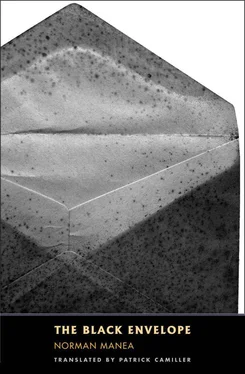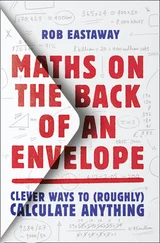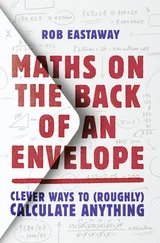“You’re not disturbing me at all. It’s just that I find it hard to cope with surprises. Come in, Doctor, come in.”
Dr. Marga goes in.
“I won’t stay long, don’t worry. I’m just passing: to give you my greeting. I don’t even know what I should be wishing you.”
“Maybe you do know. You know enough, too much. But even what you know wouldn’t help you. Wish that I’ll live in uninteresting times.”
Irina looks at him. The cloudy green of her eyes makes him feel nervous, as does her hoarse and parched voice.
“That Eastern poet, as you know, used to pray for that every day. That the one up above should protect him from interesting times. How right he was, how right.”
“Maybe you wouldn’t be able to take it. You’ll find it hard, believe me. As hard as our misery, which is actually too interesting. May I sit down?”
“Yes, of course, forgive me. Here in the armchair, right here. I’m sorry: I’m not dressed to receive guests.”
The doctor makes no comment. He sits in one of the two green armchairs flanking a little white table, opposite a matching sofa.
“Do you have guests, Irina?”
“I wouldn’t say so. I’m expecting a friend: he’s not a guest,” answers the hostess from the kitchen, where she is arranging the flowers in a vase.
“Oh. I don’t think of myself as a guest either, although I wouldn’t dare to claim the title of friend. Your friend—”
“No, I’m talking about someone else.” Irina hastens to interrupt his reverie. She comes back into the room with a tall, cylindrical copper vase. “I asked an old friend round to have a chat. He doesn’t know it’s my birthday. Just like that. So as not to be alone. He calms me. His silence, his discretion, his tiredness. And his hidden, pent-up fury. Unflinching, yes.”
She sits on the other armchair. She seems weighed down, unsure where to lead the discussion.
“He’s been through a lot. He came to this country around 1950, I think, when he was still very young — almost a child. He’d been fighting in the mountains in Greece, as a young Communist, having broken off relations with his family. It was a well-to-do family. The father, a famous academic, committed suicide when he heard that his son had become a firebrand, an extremist. Yes, he gave up his family, his vocation, his homeland, and left everything behind. Everything in the end. Himself, too, perhaps.”
“And now?”
“Withdrawn. Very withdrawn. He’s become a kind of ‘specialist’ in linguistic problems, the philosophy of language. The study of dialects, or speech defects: I don’t know exactly.”
“And isn’t he planning on going back? Greece is a free country nowadays. People live well there. A lot have returned in the last few years.”
“He has no reason to. He’s been through too much: he’d be a stranger now, with no links to the younger generation — or perhaps even the older one. He hasn’t even been back to claim his inheritance, although his wife seems to keep pestering him to do it. Sudden changes, regrets, inheritances — none of that has any attraction for him.”
“A rare case, I have to admit. These days—”
“Not only these days. But let’s drink a glass or two together! Not in celebration, because there’s no— Just for your visit. I trust you’re not here on medical business.”
“Certainly not. I just thought I’d give myself the pleasure of coming to see you, on a day when you can’t turn guests away.”
They walk out onto the terrace, Irina taking a bottle of red wine with her. They sit down in the large straw chairs. The doctor solemnly raises his glass and bows; the woman smiles and drinks in deeply.
Chit, chat: the conversation begins to slacken, then picks up again. They relax and joke like two old army comrades.
At eight o’clock the new guest appears. A sharply pointed face, thick long hair almost turned gray. He holds out a thin soft hand. He has a troubled look, probably because he didn’t expect there to be a third person.
Marga appears invigorated by the strange apparition.
“I hope I’m not being indiscreet. Ira told me a little about you.”
“Let’s make it clear that we’re not going to discuss politics!” Irina promptly breaks in. “Crowded buses, demagogic meetings, the Jabberer’s jabbering, lines for salami and mineral water and cotton for sanitary napkins? No, no politics of any kind!”
“No, I was thinking of something quite different. Of Hellas! Athens: that is, art, science, beauty, reason. And you chose the opposite. Faith, the critical, combative spirit — the side of Jerusalem! That’s what I wanted to say. It’s a contradiction, no?”
Ianuli warms the glass of red wine in the palm of his hand. Slender hands, long nails. An intermittent shudder of thin, sticklike arms.
“Of the Hebrews, then! Do you know that poem? By your great modern poet.”
All three rhythmically sip wine and munch biscuits.
“ ‘My most precious days are those when I drop my aesthetic studies,’ ” the doctor recites in a drawling voice. “Do you know the lines? ‘My most precious days are those when I drop my aesthetic studies. When I abandon the harsh beauty of Hellenism / with its sovereign attachment / to perfect and fleeting white limbs. And I become what I have always wanted to remain: son of the Hebrews, of the sacred Hebrews.’ A fantastic line, don’t you think? ‘Son of the Hebrews, of the sacred Hebrews.’ It’s by that Cavafy of yours.”
Marga looks at Irina, lost somewhere or other. Then he turns to Ianuli, who is also looking at Irina. His long thin hands move backward and forward, over knees crammed into the narrow tubes of cheap, worn trousers.
They exchange a brief look of complicity. Irina is pale, her eyes burning as if with fever.
“And what about the conclusion?” resumes the excited tenor. “ ‘But nothing of it remained at all. Hedonism and Alexandrian Art had in him a devoted child.’ What a magnificent ending! Like a cry of impotence, no? He was a great poet, that lonely man. Old and ill, exiled to the boiling mud of Alexandria.”
He remains lost in his thoughts for a few moments. Then he turns again to Ianuli, having decided to change tactics.
Ianuli does not flinch, but goes on quietly sipping from his glass.
“Nowadays people keep chasing from one place to another. For money, or adventure, or freedom. When the exile is abruptly removed from his natural surroundings and his mother tongue, he also suddenly becomes simpler. Reduced to the elements: food, housing, illness, sleep, love. He once strove for something else, something — um — something meta-phys-i-cal. But your exile is obviously of another kind. ‘For some a day comes when they have to say the great Yes or the great No.’ Do you remember? ‘I shall go to another country, on another sea.’ Remember? Do you remember Cavafy?”
Irina gives a frightened glance, now at the doctor, now at Ianuli.
Ianuli’s fixed, unwavering eyes. His dimmed expression, showing no reaction. And the garrulous doctor, always over the top.
“ ‘Nor will you find new places or other seas. / The city will follow as you circle and grow old in the same streets: / and under the same roof will your hair turn white. / Ever will you end up in this city. And as for leaving / have no hope / there is no ship and no highway for you. / As you have ruined your life in this corner / so have you laid waste the whole of the earth.’ ”
Irina stands up and looks at them both, without seeing either. In her dilated eyes is the fabled, odorous, magnificent spring of Alexandria. She goes onto the terrace, beneath the poisoned night sky, her eyes absorbed in Saturn and the Milky Way.
From time to time Goody-Goody’s tireless voice keeps coming back, displaying on that evening an unnatural logorrhea and insistence.
Читать дальше












